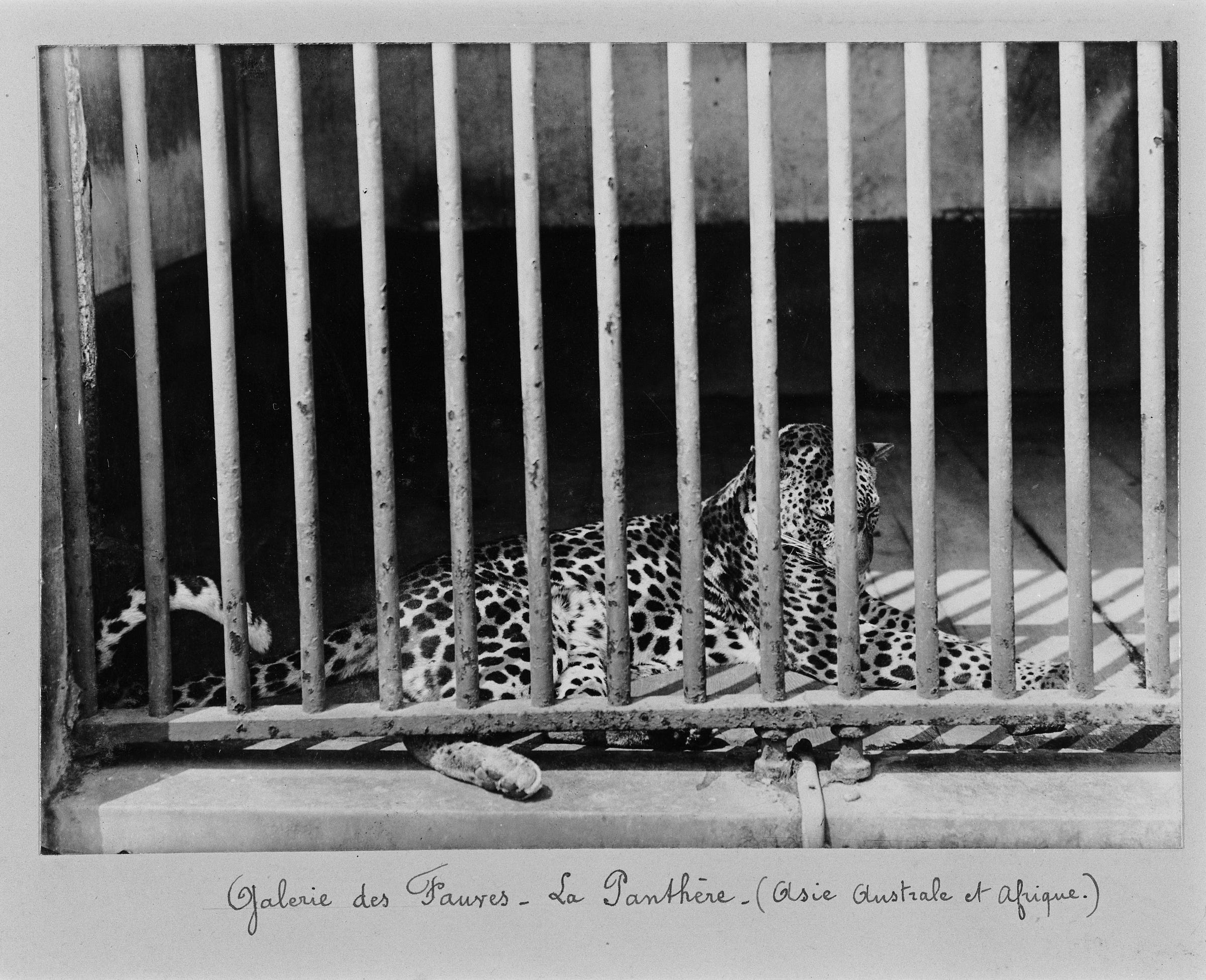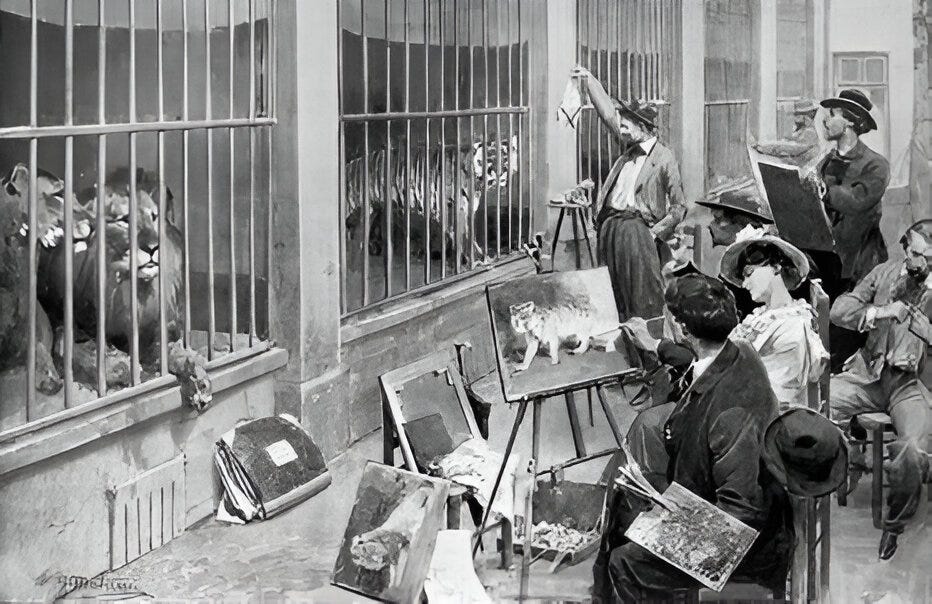You must change your life.
~ from Archaic Torso of Apollo by Rainer Maria Rilke
“Jaguar” translates from the Tupi-Guarani languages of South America to “one who kills with a single leap.” The powerful animal I recently observed from behind the glass, however, was anything but that. Its wild paws paced rhythmically around his cage, like syllables rhyming in the lines of a poem. Each time he passed next to me he gazed straight into my eyes, silently, as a friend who has a lot to say but is too disappointed in you to voice his anger.
The muscles of this animal, capable of reaching speeds of 50 mph (80 km/h) in the wild, were wasting away in the artificial confinement we had constructed. One visitor after another took their place behind the glass, and the way this large cat looked at each new arrival felt as if he knew us - humans - better than we knew him. On that day I realised that animals can be wiser than humans.
At first sight, the place we built for him was perfect. His enclosure was crafted to resemble South America as closely as possible within the bounds of England. Besides, the staff who looks after this beautiful beast received multiple awards for their care and treatment. In the wild, he had to hunt for his meal every day, not knowing for certain if he succeeded or not, here however, the food was served on time and exactly how he enjoyed it.
I must say, in the other animals I observed that day, I didn’t spot the same disturbance and unease that I witnessed in the eyes of our “leaping killer.” Maybe some animals, like some humans, do not care where they are, whether their environment is artificial or not, as long as their basic needs satisfied. This, of course, was not the case for our South American friend. He was born much larger than his cage.
Spinoza wrote that each thing in this world has its conatus (from the Latin for “effort” or “striving”). It is the inherent drive in each of us to preserve our being, but this should not be confused with mere survival instinct. In Spinoza’s system, everything in nature, whether it’s a human being, an animal, a plant, or even a rock, has this conatus, which is essentially a self-preserving force and power that aims to continue existing to enhance its own capacities.
The jaguar cannot explain his misery, his discomfort, to the animal who enjoys his imprisonment precisely because of what Spinoza describes. His conatus, the limits of his capacity, is much higher than that of many of his fellow inmates.
It would be equally hard to explain to many that some humans, because of their nature, find themselves in a similar kind of confinement. The “leaping killer” has an excuse—he never wanted to be in a cage; it was us who put him there. If he could, he would return to the wild where he belongs. But we humans build our own cages.
Our dreams and ambitions are rarely killed by external predators but often drowned by our own hands. Nothing kills one’s dreams quicker than the sense of comfort. Comfort is our modern way of escapism. We build our own cages and convince ourselves that the greater the cage, the greater our life. This is when entropy follows and we find our dreams degenerating just as the muscles of the trapped jaguar in the enclosure.
We never find out the true power of our limits, our conatus, because we fear to put ourselves into ‘the wild’ in the first place. The only reason we know jaguars can run fast is because we’ve measured their speed in the wild; they can’t exercise this natural gift within an artificial space. The indigenous people of South America saw how jaguars “leap to kill” in their natural habitat and thus gave them this name. But if they only knew this animal from behind bars, the way I did, what would they call it?
I could not stand for too long near the cage of that poor animal and when I left it a stream of thoughts and images kept flooding my mind. When I fell asleep on that day I saw the strangest dream of my life. I saw a black and white photograph of a jaguar sitting quietly in a metal cage being developed in a lightless studio.
I woke up with a vivid memory of the image, feeling deeply that it wasn’t just a product of my imagination—it felt real. I might have seen it in one of the thousands of books that I have in my library. I went through hundreds of them but none had any image that resembled what I had dreamt of. To keep my sanity intact I decided to put my search on hold. After all, what if the image wasn’t real?
Last week, however, after I shared the story of Rainer Maria Rilke and Natsume Soseki with you, the moment I pressed the ‘publish’ button, I suddenly remembered where I had seen the photograph that had deeply unsettled me.
“Every true insight is part of a sequence and leads to a sequence. It is a link in a great chain mounting creatively.” - wrote Goethe. The sequence that was unveiled to me in a dream began to unfold.
In 2022, I interviewed Rachel Corbett, the brilliant author of the book You Must Change Your Life on the creative relationship between the great sculptor Auguste Rodin and yet unaccomplished poet Rainer Maria Rilke.
Corbett wrote that Rodin, who acted as a kind of mentor to young Rilke, told his young protégé to observe the exotic animals at Jardin des Plantes de Paris. These animals were brought from around the world, marking the beginnings of what we now know as the modern zoo. This new place, where people could safely observe wild animals up close, was sensational. Journalists lined up to photograph them.
The photograph I saw so vividly in my dream was a photograph of a jaguar in a cage I found while preparing to interview Corbett. It was taken at Jardin des Plantes.
Rilke witnessed that exact jaguar, our four-pawed ‘leaping killer’, in a cage and wrote a poem, Der Panther:
His vision, from the constantly passing bars,
has grown so weary that it cannot hold
anything else. It seems to him there are
a thousand bars; and behind the bars, no world.
As he paces in cramped circles, over and over,
the movement of his powerful soft strides
is like a ritual dance around a center
in which a mighty will stands paralyzed.
Only at times, the curtain of the pupils
lifts, quietly—. An image enters in,
rushes down through the tensed, arrested muscles,
plunges into the heart and is gone.
‘A mighty will stands paralyzed’ - how sorrowfully these words sound to my inner ear after seeing the same animal as Rilke trapped in a cage. Will! It is in the power of Will that living beings differ from each other. That’s why we shed tears when we see someone with great potential fade away, like a beautiful flower that never had the chance to bloom.
‘It seems to him there are a thousand bars; and behind the bars, no world.’ for the Panther this kind of life was not his voluntary choice, but for us it often is. Centuries before Rilke the Persian poet Rumi wrote: “Why do you stay in prison when the door is so wide open? Move outside the tangle of fear-thinking. The entrance door to the sanctuary is inside you.”
Whether we escape our own cages depends on the power of our conatus, our essence, and our Will. Some animals are far too strong to be domesticated, others were born for it.
As always - Confide tibimet.








As always, you continue to amaze with your comparisons and analysis. THANK YOU, VASHIK!!!
Well well well. Isnt it funny that my lord god universe delvers to me a more pure reading of my inner feelings and urges right as i have been ruminating on them. Yes the will - let it shine. Let it burn through procrastination and doubt.
Thank you for writing this.